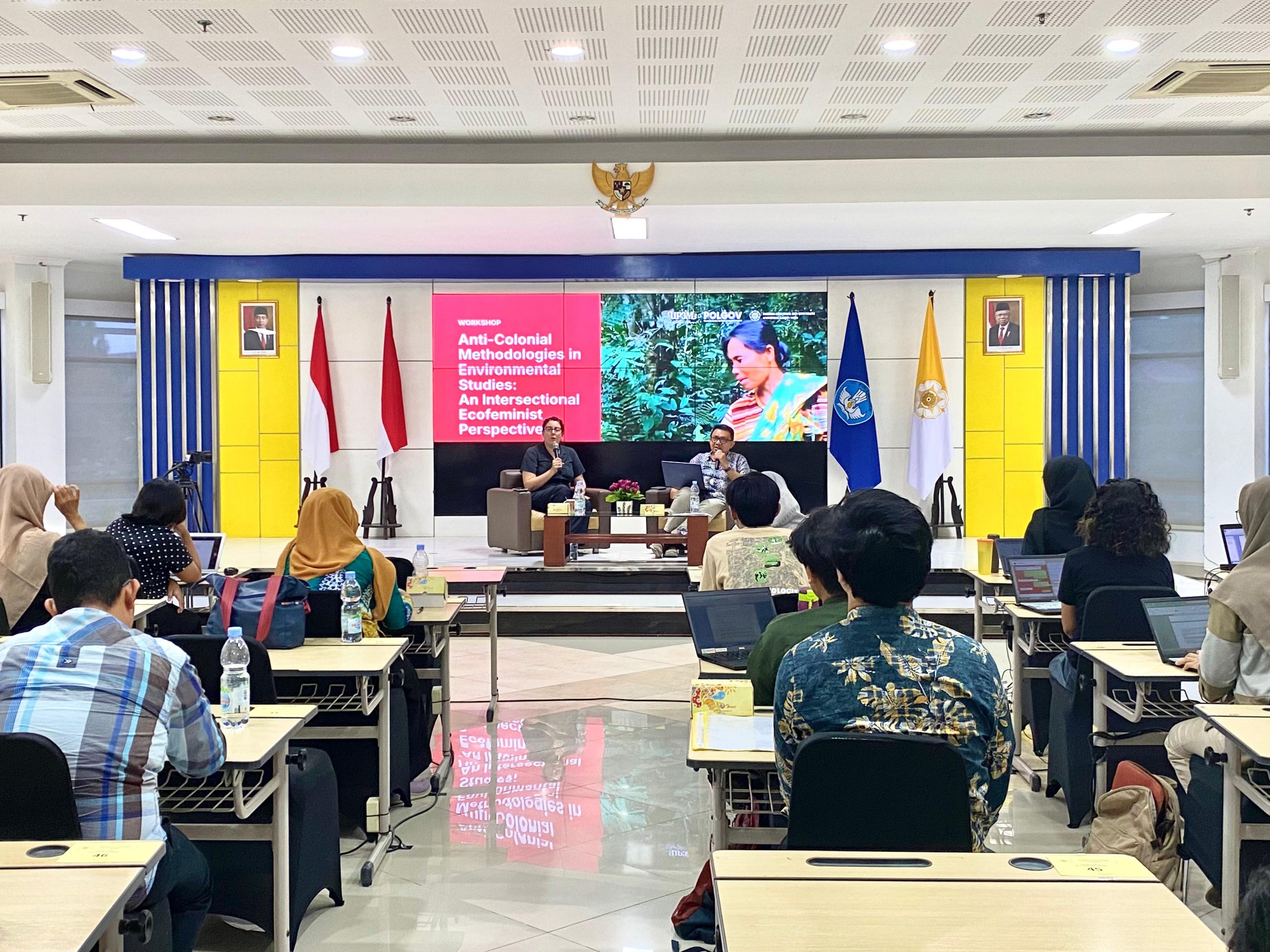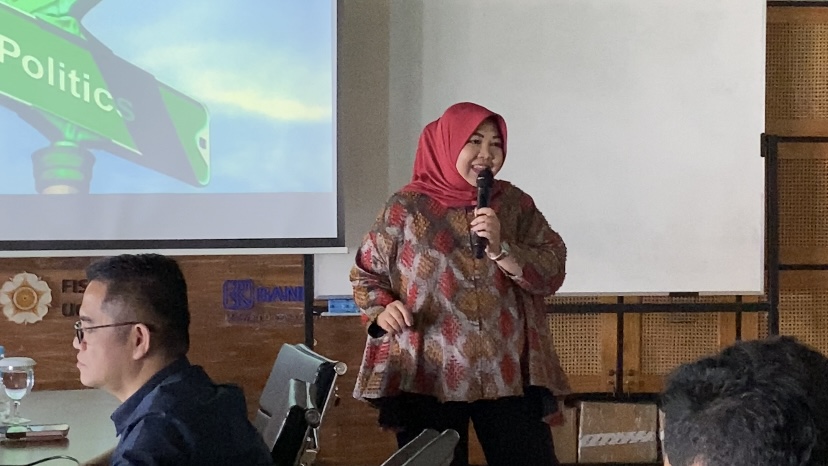
Research Center of Politics and Government (PolGov) in collaboration with the Unit of Research, Publication, and Community Service (UP3M) and facilitated by the Faculty of Social and Political Sciences at UGM organized a workshop titled ‘Anti-Colonial Methodologies in Environmental Studies: An Intersectional Ecofeminist Perspective.’ This event occurred in a hybrid format on Thursday, June 27, 2024, from 14:00 to 17:00 at the FISIPOL UGM Auditorium, via Zoom Meeting, and live-streamed on YouTube. The workshop invited Dr. Elena Burgos Martinez, an assistant professor at Leiden University Institute for Area Studies, as the speaker and was facilitated by Hasrul Hanif, a lecturer from the Department of Politics and Government.
Elena, with a background in political ecology, gender studies, and environmental anthropology, encouraged researchers, students, and lecturers to discuss anti-colonial methodologies in academic studies. Before the event began, Hasrul Hanif posed two questions to explore: 1. As Indonesian academics, why do we need to free our minds from colonial idealism or methodologies? 2. What are the main points to consider when practicing anti-colonial methodologies in academic studies? Elena began her discussion by reflecting on current research methodologies, showing how colonial biases can relate to power relations and how one form of knowledge can displace another. Furthermore, Elena discussed anti-colonialism in academia, emphasizing that although we might not fully decolonize institutions, we can start with individuals through reflection. In closing, Hasrul Hanif highlighted key points from the discussion. He emphasized the importance of sharpening critical thinking towards the politics of knowledge production and research history. Additionally, he underscored that reflexivity and positionality should be understood from the outset in conducting studies, especially in social sciences.
The workshop can be accessed on DPP UGM’s YouTube channel or through the link https://www.youtube.com/live/A-jmz13utJE?si=9dDMJ_aWJ6F-mwUh“




